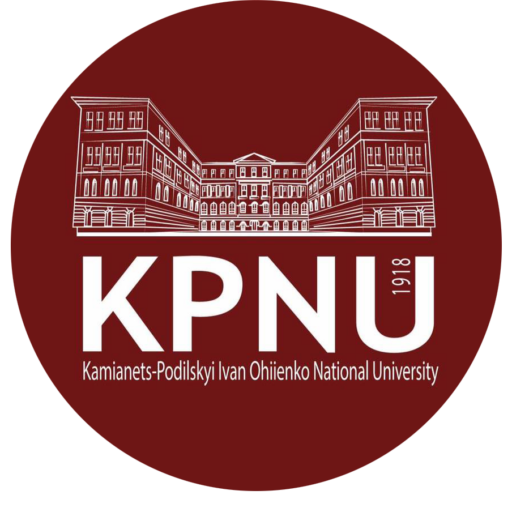Олена Главацька
(Кам’янець-Подільський національний університет імені Івана Огієнка)
НОВІ АСПЕКТИ ЗНАЧЕНЬ КОНЦЕПТУ ’MOTHER’ У СУЧАСНІЙ АНГЛІЙСЬКІЙ МОВІ
Фемінізми, лексичні та фразеологічні найменування, об’єднані значенням ’особа жіночої статі’, як відомо, представлені на всіх щаблях ієрархічної членування макросистеми «людина». Названі номінації вже були предметом уваги мовознавців, як і об’єктом лексикографічного опису в різних аспектах на матеріалі різних мов [1].
Предметом нашої уваги в даній статті є простою і загальнозрозумілою концепт загальнолюдської культури ’жінка-мати’. Фактичний матеріал взято зі словника «Інновації у словниковому складі англійської мови початку XXI століття» [2]; використано також дані Інтернету та англомовних періодичних видань, що виявляють найбільшу оперативність мовного реагування на всі різноаспектні зміни в житті суспільства [3].
З усіх значень слова ’mother’, зафіксованих словниками, ми розглядаємо лише найбільш важливе, вихідне (пряме) значення: mother – the female parent of a person; a woman who has borne a child; esp., a woman as she is related to her child or children.
Відзначимо, що у другій половині ХХ століття та й на початку XXI істотно розширилося смислове наповнення концепту жінка-мати за рахунок розширення сполучуваності слова mother з прикметниками (рідше – іменниками), яке можна пов’язувати з соціальними змінами в суспільстві: вихід жінки на роботу, народження дітей поза шлюбом, збільшення числа розлучень, зміни біологічного характеру, які виникали поступово як наслідок нового стилю життя, розвитку медицини, несприятливого впливу екології: birth mother – the woman who gives birth to a child regardless of whether she is the genetic mother or subsequently brings up the child; a child’s natural mother, rather than a woman, who has become the child’s legal mother throw the adoption; foster mother – a woman having the responsibility and authority of a mother, though not by birth or adoption, and giving, receiving, or sharing the care appropriate to that standing; a woman acting as mother to a child who is not his or her offspring, nor a stepchild and not legally adopted; an adoptive mother – a woman who has become a mother by the act of adoption, as opposed to a biological mother; nursing mother – a mother who is feeding her baby from her breast; mother-in-law – husband’s or wife’s mother; stepmother – a wife of one’s biological father after the death or divorce of one’s mother; ex-stepmother – a previous wife of one’s father during one’s lifetime, other than mother, typically following the divorce or death of the mother; co-mother – a wife of one’s father who is not one’s mother; that is, co-wife of one’s mother, in respect to their children; in a lesbian couple, the nonbirth mother (partner of the birth mother) of a child, especially one who takes an equal role in mothering the child; biological mother – natural mother; a woman who is related to the child genetically rather than by adoption; gestational mother – a woman who carries a fertilized embryo to completion of pregnancy; surrogate mother – a woman who gives a birth to a baby for another woman who is unable to have babies herself; a woman who bears the embryo to term for a couple biologically unable to have children; a woman who gives birth to a child not her own, with the intent to give that child up to at least one of the biological parents once it is born; an unmarried mother / single mother – unmarried, divorced or widowed mother of nonadult children; a woman with one or more children, who is neither married, nor living together with his or her partners, etc.
Цей перелік може бути продовжений і новими утвореннями: soccer mom – a mother who spends a lot of time driving her children to sports practice, music lessons etc, considered as atypical example of women from the middle to upper classes in US society; stay-at-home mother – a mother who stays at home, usually to take care of their children, rather than working in an office, factory, Tiger Mother – а loving but strict mother who demands from her children obedience, respect, and academic excellence (Kultida Woods, the mother of golfer Tiger Woods), etc.
Нові аспекти значень концепту ’mother’ викликані багатьма факторами: різноманітні нові підходи до репродукції, штучне запліднення, планування сім’ї викликали відповідне розмежування за принципом – роль жінки в народженні і вихованні дитини. На відміну від найменувань birth mother, genetic mother, biological mother, surrogate mother, лексичні одиниці step mother, adoptive mother, foster mother, mother–in–law – чітко вказують на відсутність біологічного зв’язку між матір’ю і дитиною.
Найменування working mother, stay–at–home mother / full–time mother, що виникли як відображення протилежних моделей поведінки і життя жінки, відображають зміни стереотипного поведінки матері.
Таким чином, складові змісту концепту ’mother’ досить різноманітні. В сукупності вони утворюють складну семантичну структуру, в якій виділяються основні категоріальні ознаки (семантичне ядро) і приватні, що конкретизують (периферія).
Вживання аналітичних сполучень зі словом mother в англійській мові свідчить про зміну ролі жінки-матері в сучасному світі і акцентує увагу на нові аспекти взаємин у сім’ї, сприйняття жінки в суспільстві і причини появи цих інновацій і тенденцій.
ЛІТЕРАТУРА
- Главацкая Е.И. Номинации женщины-матери в русском и английском языках. Наукові праці Кам’янець-Подільського національного університету імені Івана Огієнка: Філологічні науки. Кам’янець-Подільський : Аксіома, 2011. Вип. 28. С. 81-84.
- Зацний Ю.А., Янков А.В. Інновації у словниковому складі англійської мови початку ХХI століття. Вінниця : Нова Книга, 2008. 360 с.
- Paul McFedries. WordSpy [Електронний ресурс]. Режим доступу : http://www.wordspy.com
